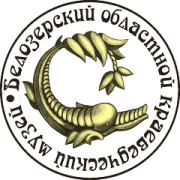Belozersk Squad
According to many chronicles, Dukes Fyodor Romanovich and Ivan Fyodorovich from Belozersk took part in the Battle of Kulikovo. Their names are in the death roll. For example, the story of the Battle of Kulikovo tells us: “… The following people were killed combating on this battle field: Duke Fyodor Romanovich from Belozersk, his son Ivan, Duke Fyodor Tarussky, his brother Mstislav, Duke Dmitry Monastyrev, Semyon Mikhailovich, Mikula, Vasily’s son, Mikhaila Ivanovich, Akinf’s son, Ivan Alexandrovich, Andrey Serkizov, Timofey Vasilyevich Akatyevich, also known as Volui, Mikhaila Brenkov, Lev Mozyrev, Semyon Melik, Dmitry Mininich, Alexander Peresvet, who was a boyar in Bryansk before, and many others which names are not listed in these books. I have just mentioned dukes, military governors, noble and well-known boyars. Other boyars and servants are not listed here because their quantity is beyond my understanding for many people were killed in this battle”. No other dukes from Belozersk associated with the Battle of Kulikovo are mentioned by chroniclers.
The story of the Battle of Kulikovo is described in more detail in Vasily Yermolin’s chronicle which was evidently written soon after the death of Dmitry Donskoy and came to us a manuscript of the late 15th century. This story was a basis for other chronicles such as the Novgorod Fourth Chronicle and Sofia First Chronicle. As the chronicles say, people from Belozersk were in the main regiment of the Grand Duke during that battle. Just two Belozersk dukes who participated in the Battle of Kulikovo are mentioned in family registers (The Velvet Book, etc.).
More dukes are mentioned in the Nikon Chronicles only: “… The Grand Duke with his brother and other dukes and military governors went there and came to a place where eight killed dukes from Belozersk were lying, they were courageous and strong good men, dying as one for all, and with many their boyars…”.
Contemporary researchers (O.V. Dvurechensky, M.I. Gonyany, A.N. Kirpichnikov) describe the Battle of Kulikovo as a battle of horsemen squads mainly. The Belozersk squad was a team of professional military riders. Infantry from either Belozersk or other areas apparently did not take part in the Battle of Kulikovo. The exact number of warriors is unknown. As a rule, duke squads consisted of several hundreds of warriors.
More dukes from Belozersk (up to 15) are mentioned in literature sources dated the 15th century but they are a rather loose interpretation of chronicles. Such sources contain details on participation of the Belozersk dukes in the Battle of Kulikovo who were not mentioned in the chronicles.
This assurance in immortality of our homeland, understating and feeling of its history, origins of ethnic groups and ancient culture penetrate many poems of Sergey Orlov.
Монолог воина с поля Куликова
…Лежат князи Белозёрски, вкупе побиены суть…
Сказание о Мамаевом побоище
Их четырнадцать было, князей белозерских,
Я пятнадцатый с ними,
Вот стрелой пробитое сердце
И моё забытое имя.
И стою я в полку засадном,
Вольный воин, как терний сильный.
Сотоварищи мои рядом,
Нету только ещё России.
Нет России с песней державной
С моря синя до море синя,
Ни тесовой, ни златоглавой,
Нет ещё на земле России.
Есть земель вековая обида,
Есть рабы, восставшие к мести:
Чем так жить – лучше быть убиту,
А для нас это дело чести.
Всё сомнут лохматые кони,
По степи помчат на аркане,
Но на нас наткнётся погоня,
Ну а мы отступать не станем.
Конь мой гривой мотает рыжей,
Прыщут тучей на солнце стрелы,
Кычут коршуны, кружит крыжень —
А какое до них нам дело!
Как орда Мамая качнётся,
Как мы ляжем костьми на поле, —
Так Россия с нас и начнётся
И вовек не кончится боле.
1945 г.
Эта уверенность в бессмертности своей Родины, постижение сердцем ее истории, истоков народности ее древней культуры пронизывают многие произведения поэта.
(docx. 25.1 Кб)
